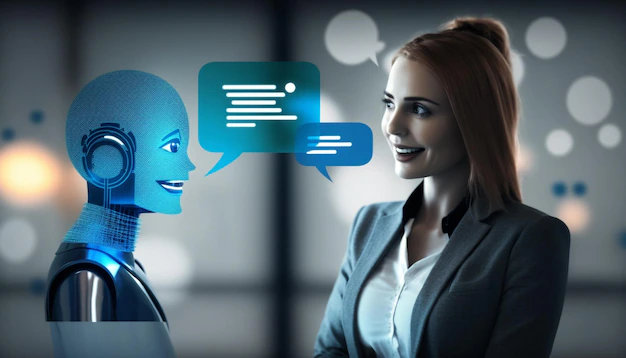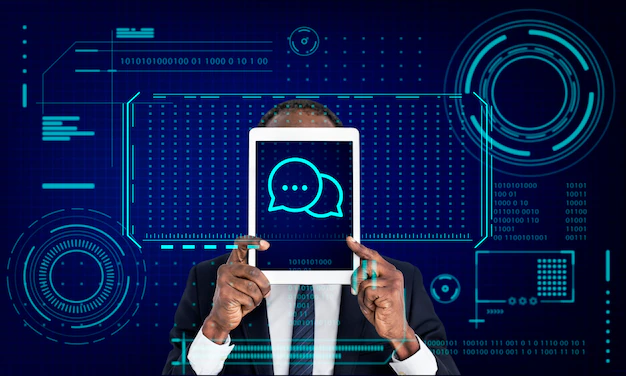
Introduction
In today’s fast-paced world, technology has transformed the way we communicate, with messaging apps and chatbots taking center stage. One such platform that has revolutionized conversation is Chatbing. This article will delve into the features and benefits of Chatbing and how it has redefined the way we interact online.
The Rise of Chatbing: A Game-Changer in Conversations
- The Birth of Chatbing
- Chatbing’s Evolution in Artificial Intelligence Technology
- Machine Learning and Natural Language Processing
- How Chatbing Differs from Traditional Messaging Apps
- Personalized Conversations
- Seamless Integration with Other Platforms
- Context-Aware Responses
Unraveling Chatbing’s Features
- User-Friendly Interface and Accessibility
- Cross-Platform Compatibility
- Intuitive Design
- Smart Responses and Predictive Suggestions
- Language Understanding Capabilities
- Contextual Recommendations
- Multi-Language Support and Real-Time Translation
Enhancing Conversations with Artificial Intelligence
- Automated Customer Support
- 24/7 Assistance
- Efficient Issue Resolution
- Reduced Human Error
- Personal Assistant Abilities
- Reminders and Notifications
- Calendar Integration
- Interactive and Entertaining Conversations
- Games and Trivia
- Jokes and Fun Activities
The Benefits of Chatbing in Various Fields
- Businesses Leveraging Chatbing
- Marketing and Sales
- Customer Engagement and Support
- Data Collection and Analysis
- Educational Institutions and Online Learning
- Virtual Classrooms and Tutoring
- Language Learning
- Educational Resources
- Personal Use and Everyday Conversations
- Language Assistance and Learning
- Social Interaction and Entertainment
- Personal Organization and Productivity
The Future of Chatbing and Conversational AI
- Advancements in Artificial Intelligence Technology
- Chatbing’s Continuous Learning
- Integration with Internet of Things (IoT)
- Ethical Considerations and Data Privacy
- Ensuring User Security
- Responsible AI Usage
Conclusion
Chatbing, with its powerful AI capabilities, has transformed the way we communicate and interact online. Its personalized conversations, smart responses, and vast array of features make it a leading platform in the world of messaging apps. As technology continues to advance, Chatbing will undoubtedly play a significant role in shaping the future of conversational AI.

Frequently Asked Questions (FAQs)
- Can Chatbing understand multiple languages?
- Is Chatbing available on both mobile and desktop devices?
- How does Chatbing handle user privacy and data security?
- Can businesses integrate Chatbing into their existing systems?
- Is Chatbing capable of learning and adapting to new situations autonomously?
In today’s fast-paced digital age, the way businesses interact with their customers has significantly evolved. One of the most prominent advancements in this realm is the rise of chatbots. Chatbots, powered by artificial intelligence (AI), have revolutionized customer experience by providing efficient, personalized, and round-the-clock interaction. This article explores the concept of chatbots, their benefits, applications, and the future prospects they hold.
What are Chatbots?
Chatbots Defined
Chatbots are computer programs designed to simulate human conversation through text or voice interactions. These AI-powered virtual assistants use Natural Language Processing (NLP) algorithms to understand, process, and respond to human queries and requests.
Types of Chatbots
- Rule-Based Chatbots: These chatbots follow predefined rules and respond to specific input patterns or keywords. While they offer straightforward responses, they lack the ability to understand ambiguous queries.
- AI-Powered Chatbots: These advanced chatbots use machine learning algorithms to learn from human interactions and continually improve their responses. They are capable of understanding natural language and provide more contextually relevant answers.
Benefits of Chatbots in Businesses
1. Enhancing Customer Support
Chatbots offer prompt and efficient customer support, available 24/7. They can handle a vast number of queries simultaneously, reducing customer wait times and increasing satisfaction levels.
2. Increased Efficiency and Cost Savings
By automating repetitive tasks and handling routine inquiries, chatbots significantly reduce human efforts. This allows businesses to allocate resources more strategically and achieve cost savings in customer service operations.
3. Personalized Customer Experience
AI-powered chatbots analyze customer data and preferences to provide personalized recommendations and solutions. They can remember past interactions, tailor responses, and create a more engaging experience for users.
4. Lead Generation and Conversion
Chatbots can act as virtual sales representatives, engaging potential customers, and providing product information. By nurturing leads and guiding them through the sales funnel, chatbots contribute to increased conversion rates.
Applications of Chatbots
1. Customer Service
Chatbots are widely used in customer service to resolve queries, provide product information, and offer technical support. They can handle repetitive tasks efficiently, leaving complex issues to be addressed by human representatives.
2. E-commerce
Chatbots are integrated into e-commerce platforms to assist customers in finding products, placing orders, and addressing post-purchase inquiries. They provide personalized recommendations and enhance the overall shopping experience.
3. Travel and Hospitality
Chatbots are utilized in the travel and hospitality industry to facilitate bookings, provide travel information, and assist with customer inquiries. They offer real-time updates, weather forecasts, and personalized recommendations for activities and accommodations.
4. Financial Services
Chatbots are increasingly being used in the financial sector to provide personalized banking assistance, process transactions, and offer financial advice. They can help customers track expenses, manage budgets, and provide updates on account balances.
The Future of Chatbots
Chatbots have already made a significant impact on customer experience, but their potential is far from exhausted. As AI technology continues to advance, we can expect chatbots to become even more intelligent, intuitive, and human-like.

Future developments in chatbots may include:
- Emotional Intelligence: Chatbots may be equipped with the ability to understand human emotions and respond empathetically, enhancing customer engagement and satisfaction.
- Voice Recognition: Voice-operated chatbots will become more prevalent, allowing users to interact with them through voice commands, making the conversation more natural and convenient.
- Multilingual Communication: Chatbots will become proficient in communicating in multiple languages, breaking down language barriers and expanding their global reach.
